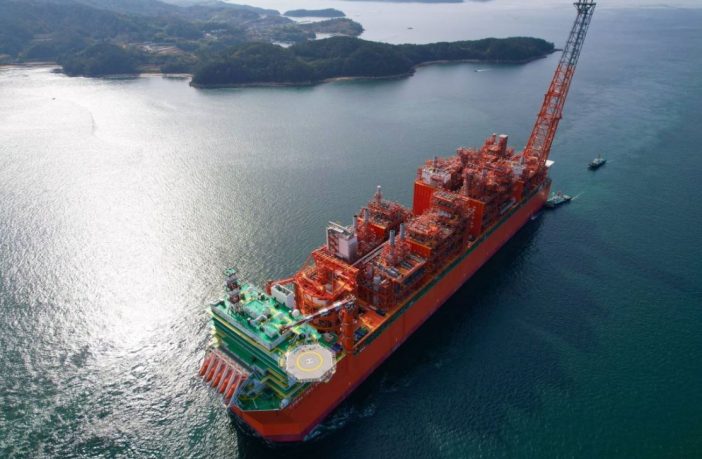- The draft law on the sovereign wealth fund of Mozambique (FSM), to be sent to parliament, provides that capitalisation will start with this year’s revenues from the Coral Sul platform, which began extracting gas from the Rovuma in June. Read more
“The revenues from exploration of the 2022 floating LNG Coral Sul Project are allocated,” according to the articles of the new law, reads the document consulted on Thursday by Lusa, which includes an article on the project.
The draft law is expected to be considered by parliament by December, according to the memorandum between the government and International Monetary Fund (IMF) that supports the financial assistance programme of US$470 million (about the same amount in euros) until 2025.
The draft law establishes that the FSM will be capitalised in the first 15 years with 40% of revenues from gas and oil, with 60% going to the state (budget).
From year 16 onwards, revenues will be shared equally between the fund and the state budget, the document states, which is different from the proposal presented in 2020 by the Bank of Mozambique and which was subject to public consultation – the proposal was to split it equally for 20 years and then allocate 80 percent of the revenues to the fund.
The basis on which the amounts to be allocated to the FSM and the state budget will be calculated is yet to be detailed.
The law provides that this base will be the gross revenue from the exploitation of oil resources (including the tax on oil production and corporate income tax), but the amounts to be handed over to the state relating to the “production bonus” and “production sharing” are still to be regulated.
Each year, the government will make forecasts for the revenue of the sector in the following year and the priority will be to fill the quota foreseen for the state budget – the law indicates that the FSM portion may serve to cover the difference, if the reality falls short of the forecasts.
On the other hand, if the funds exceed the forecasts, the excess goes to the FSM. There are other special cases in which transfers can be made from the FSM bank account to the state budget, for example, to respond to emergencies or war, always and only with the authorisation of parliament.
Or in scenarios where the profitability of the fund’s investments is higher than the share that the state budget can collect from gas revenues. The law requires the definition of a national development strategy to guide the structural investments that should be made with the transfers of gas and oil revenues to the state budget.
On the capitalisation side of the FSM, the rule is to “invest in non-oil sector assets”. The draft law also clarifies that the fund cannot serve as a guarantee for loans (as happened with sovereign guarantees in the case of hidden debts), nor can it finance political or party activities.
The governance of the sovereign wealth fund will be the responsibility of the Mozambican parliament – to which it must be accountable and which through a commission may always request information from the executive -, the government, through the finance ministry, and the Bank of Mozambique.
The FSM will be based on a dedicated bank account, in dollars, at the Bank of Mozambique.
The proposed law on the FSM states that its objectives are to use revenues from gas and oil to “leverage the country’s development,” “contribute to the stabilisation of the state budget against the volatility of oil revenues and accumulate savings for future generations”.
In 2020, Mozambique expected to receive US$96 billion (roughly the same amount in euros) in the life of Rovuma gas, almost seven times the annual gross domestic product (GDP), but in the meantime, armed violence in Cabo Delgado has put investments on hold.
Thus, of the three liquefied natural gas projects approved for the region, only the smallest (Coral Sul platform, 3.4 million tonnes per year) is active, shrinking forecasts and leaving them uncertain.
Author: Bryan Groenendaal
Source: LUSA















